Editorial
Oil Theft: Beyond FG’s Lamentation
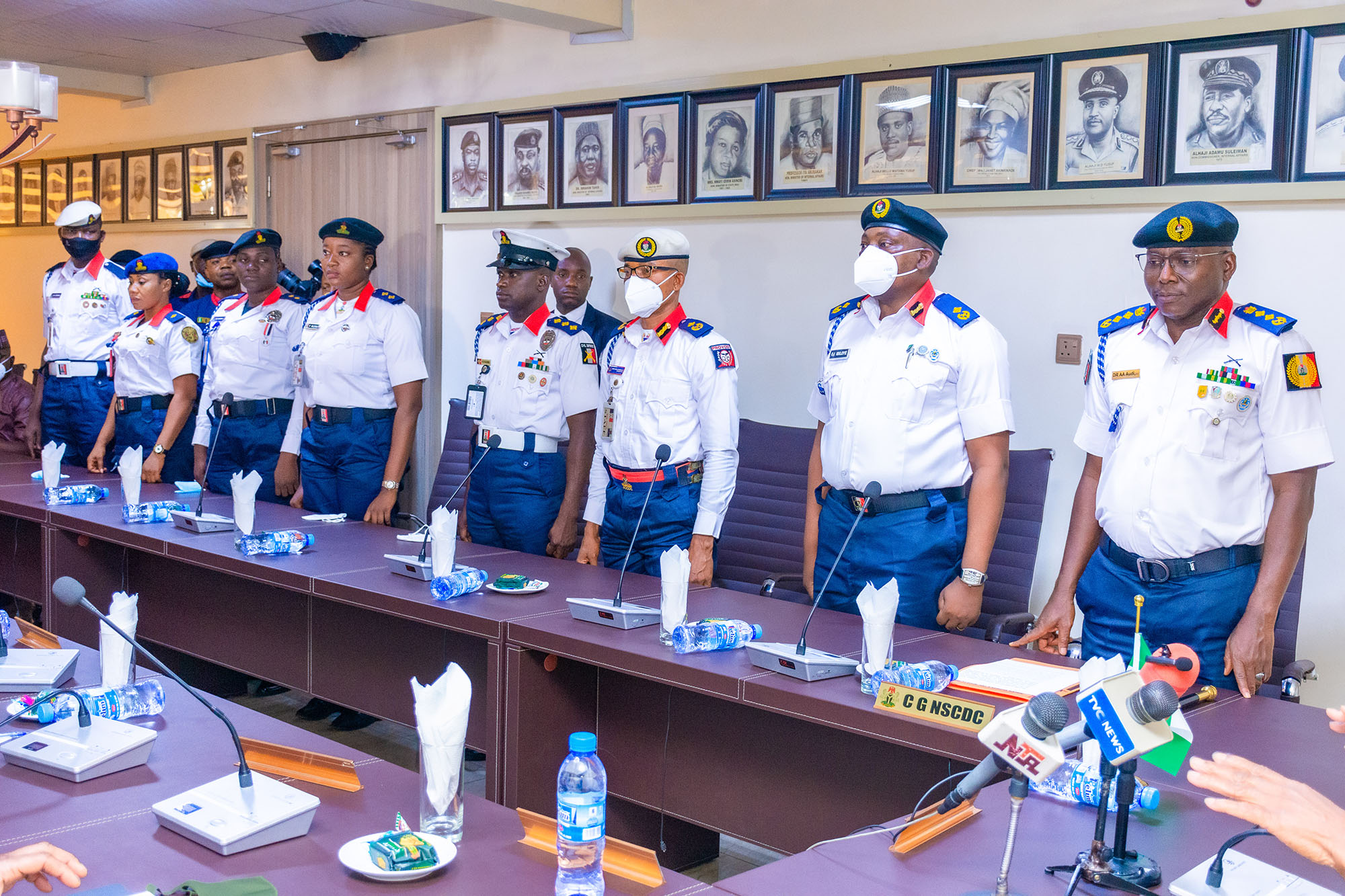
At an on-the-spot assessment of some pipelines damaged by vandals encompassed in illegal refining
at Ibaa community in Emuoha Local Government Area of Rivers State, the Minister of State for Petroleum Resources, Timipre Sylva, said the Federal Government would no longer condone any form of criminality in the nation’s oil and gas facilities and installations.
Aside from causing considerable losses for the country, according to him, the criminals entangled in pipeline vandalism were also destroying the livelihoods of locals and the environment. To resolve the issue, he said: “The community must be involved; the security arm must be involved and the third arm, which is the operating public, must be involved. I want to let everybody know that these criminals have their days numbered because the country has lost so much from their activities.”
Crude oil theft is not new in Nigeria. Indeed, the first report of heist of the commodity dates back to the 80s, when the military was still firmly in charge of administering the country. Since then, deliberations surrounding the phenomenon have gained national elevation. However, what is unusual now is the sheer volume of the product lost to non-state actors and the manner the situation has disrupted the nation’s economy.
Major industry players lately raised alarm about the high rate of oil theft in the sector, preventing Nigeria from meeting its approved production quota by the Organisation of Petroleum Exporting Countries (OPEC). Nigeria’s billionaire businessman, Tony Elumelu, had stated that the reason the country could not meet its oil production ratio was not because of low investment but theft. The nation’s oil production allotment as approved by OPEC is pegged at 1.8 million barrels per day, but in the last few years, the country has struggled between 1.3 and 1.4 million barrels.
A 2019 report by the Nigeria Extractive Industries Transparency Initiative (NEITI) stated that Nigeria lost about $42 billion to crude theft, including domestic and refined petroleum products losses from 2009 to 2018. The report gave the breakdown of the losses to entail about $38.5 billion on crude theft, $1.6 billion on domestic crude, and another $1.8 billion on refined petroleum products. NEITI blamed the forfeitures on the government for neglecting oil fingerprinting technology; the absence of broad metering infrastructure of all oil facilities, and other creative strategies to combat the peril.
It is disconcerting that high-level cases of oil larceny have become a danger to the country’s corporate and economic corporality, with the industry now contemplating transporting crude oil from fields to export terminals by trucks. The Chief Executive of the Nigerian Upstream Petroleum Regulatory Commission (NUPRC), Gbenga Komolafe, had disclosed that many of the crude oil losings came from Bonny Terminal Network, Forcados Terminal Network and Brass Terminal Network.
Oil theft in the Niger Delta is a national commination. It is one of the most pestilent threats to our nation because it puts so much money in the hands of unregulated non-tax payers. The country is not snug. Apart from revenue loss, this impends over our collective security. The thieves could redistribute the resources to acquire byzantine armouries and face off with the state security agents to achieve their villainous aims.
The government and oil firms should ally to resolve the issue, especially on the agreed volume of oil lost to vandals, since the knots strike at the federation’s revenue. All the stakeholders should embody their activities and thoughts on the question. This measure is peremptory as the situation seems to be getting worse, despite all efforts to rein it in. The imminence must end to enable the country to profit from the surging price of oil and protect the environment from oil spills.
Security agents should open out a unique strategy and a new drive by hounding not only the criminals, but also their chaperones. The scale of crude oil theft and pipeline vandalism seen now is beyond explication. While we appreciate the military for its efforts to end the infraction, we think that the service should collaborate with host communities and oil companies and deploy the right technology to contain the hazard.
Sadly, this felony thrives because of the chicanery of security officials, the communities and political leaders with criminal elements working on their behalf. The government needs to wake up. Currently, most public projects are funded with borrowed funds, enkindling fears that the country might be heading for another debt trap. The Debt Management Office (DMO) says Nigeria is saddled with a debt stock of N38 trillion as of September 2021, up by N5 trillion from the N33 trillion of December 2020.
Nigeria’s security architecture needs a comprehensive overhaul. Buhari should withdraw the current crop of security agents in the Niger Delta because they have failed. The new set should be given univocal mandates, while the perpetrators of these crimes must face stiff penalties. This requires strong political will for the government. Security personnel, community and political leaders involved in the sleaze must be named, shamed, and prosecuted.
The leakage has endured for too long and should be halted. At the height of offensives on oil facilities by Niger Delta militants, OPEC estimated production losses in Nigeria at almost 800,000 bpd facilitated by international syndicates working with local cartels, militants, security personnel and officials. A government-appointed committee declared that the country still lost $1.35 billion to oil theft in the first six months of 2019.
It is oddly foreboding that Nigeria is paying scrimpy attention to a sharp increase in oil theft. A ubiquitous activity in the Niger Delta, oil pilfering costs the Nigerian economy billions of dollars in revenue annually. Feeling the pinch more than ever, the Rivers State governor, Nyesom Wike, had last year, justifiably laid the issue on the table again for national discourse. The governor’s obtrusive points should quickly persuade the Buhari’s administration to act firmly.
Editorial
No To Hike In Telecom Tariffs
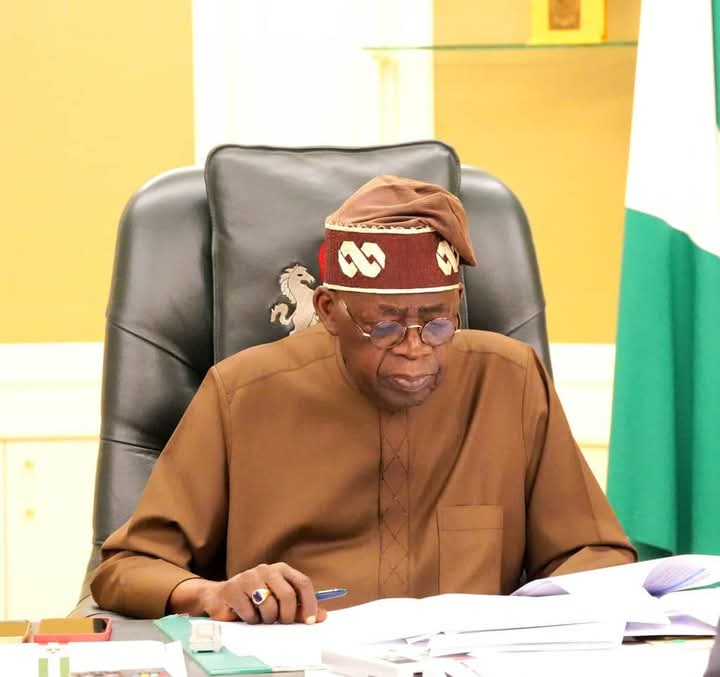
Nigerians are outraged by the Federal Government’s approval of a 50 per cent increase in telecommunications tariffs, with organised labour threatening to mobilise workers to boycott telecom services. The Nigeria Labour Congress (NLC) and the Trade Union Congress of Nigeria (TUC) have described the upcoming tariff as outrageous, lamenting that it will worsen the already harsh living conditions of workers and the masses.
Similarly, the Coalition of Northern Groups (CNG) rejected the hike, stating that it was ill-timed and did not take into consideration the struggles of Nigerians. The Human Rights Writers Association of Nigeria (HURIWA) also criticised the review, calling it an illegal, unconstitutional, and oppressive policy that undermines the fundamental rights and freedoms of Nigerians. It is a difficult moment for the industry.
Recall that the Nigerian Communications Commission (NCC) approved a 50 per cent increase in tariffs for telecom operators last Monday, instead of the 100 per cent raise that operators had requested. This decision quickly angered the consumers’ association, which criticised the government’s approval as not only punitive but also insensitive.
We wholeheartedly agree with the stance of labour and other groups on this very sensitive matter. We unequivocally condemn the 50 per cent increase in telecom tariffs. Though telecom operators cite higher operational costs and inflation as reasons for the hike, the timing and impact raise serious concerns in the current economic situation. It is a blatant attack on the well-being of the Nigerian worker and a betrayal of the people to corporate interests.
Telecommunication services are essential for daily communication, work, and access to information. However, the average Nigerian worker already spends approximately 10 per cent of their wages on telecom charges. For a worker earning the current minimum wage of N70,000, this means an increase from N7,000 to a staggering N10,500 per month or 15 per cent of their salary, a cost that is unsustainable.
This hike exemplifies the government’s apparent ease in prioritising corporate profits over citizens’ welfare. It is shocking that the government approved a 50 per cent tariff increase for telecom companies within a month, yet took nearly a year to approve the recent minimum wage for workers, despite the rising cost of living and inflation eroding purchasing power.
The questions are: When will the government stand up for the citizens it swore to protect? When will the National Assembly rise to its responsibility and hold the Executive accountable for policies that blatantly undermine the welfare of the majority? When will the common man finally heave a sigh of relief in Nigeria? We urge the government, the NCC, and the National Assembly to review the implementation of this ill-advised increase.
It is difficult to understand the state of mind of the managers of the nation’s economy. Sadly, these managers have alienated themselves from the reality of today. How can a government approve a 50 per cent hike in the tariff of telecom services when even the N70,000 minimum wage has been eroded by inflation, electricity tariff hikes, exorbitant fuel costs, transportation, and other social services?
Even if there is a need for an increase, why does it have to be 50 per cent? If, after dialogue, it is agreed that a raise is necessary, we should all consider a more reasonable increase rather than the 50 per cent hike. Fifty per cent is excessive and will only worsen the already harsh living conditions of workers, placing a heavier burden and more suffering on them and the general population.
The recognition of telecommunication services as essential components of modern society cannot be overstated. In an era characterised by rapid digital transformation, these services are fundamental not only for personal communication but also for facilitating broader socio-economic engagement. The proposed tariffs increase in the telecom sector raises critical concerns regarding equitable access to vital services that support communication, education, healthcare, and commerce.
In a democracy, the people should be the central focus of all government actions and policies. Every decision should aim to improve their quality of life. This plan must be carefully scrutinised with the welfare of citizens in mind. An increase in telecom tariffs will negatively impact many Nigerians, as the internet has become an essential tool for business, communication, and daily activities.
The Tide calls for the immediate suspension of the 50 per cent hike in tariffs. Instead, we recommend a more reasonable adjustment of a maximum of 10 per cent, which balances industry sustainability with the current economic realities in the country. We also demand that the NCC engages in genuine, inclusive consultations with consumer advocacy groups, civil society organisations, and other grassroots stakeholders before implementing any tariff adjustments.
Editorial
Hurray, Siminalayi Fubara Is 50!
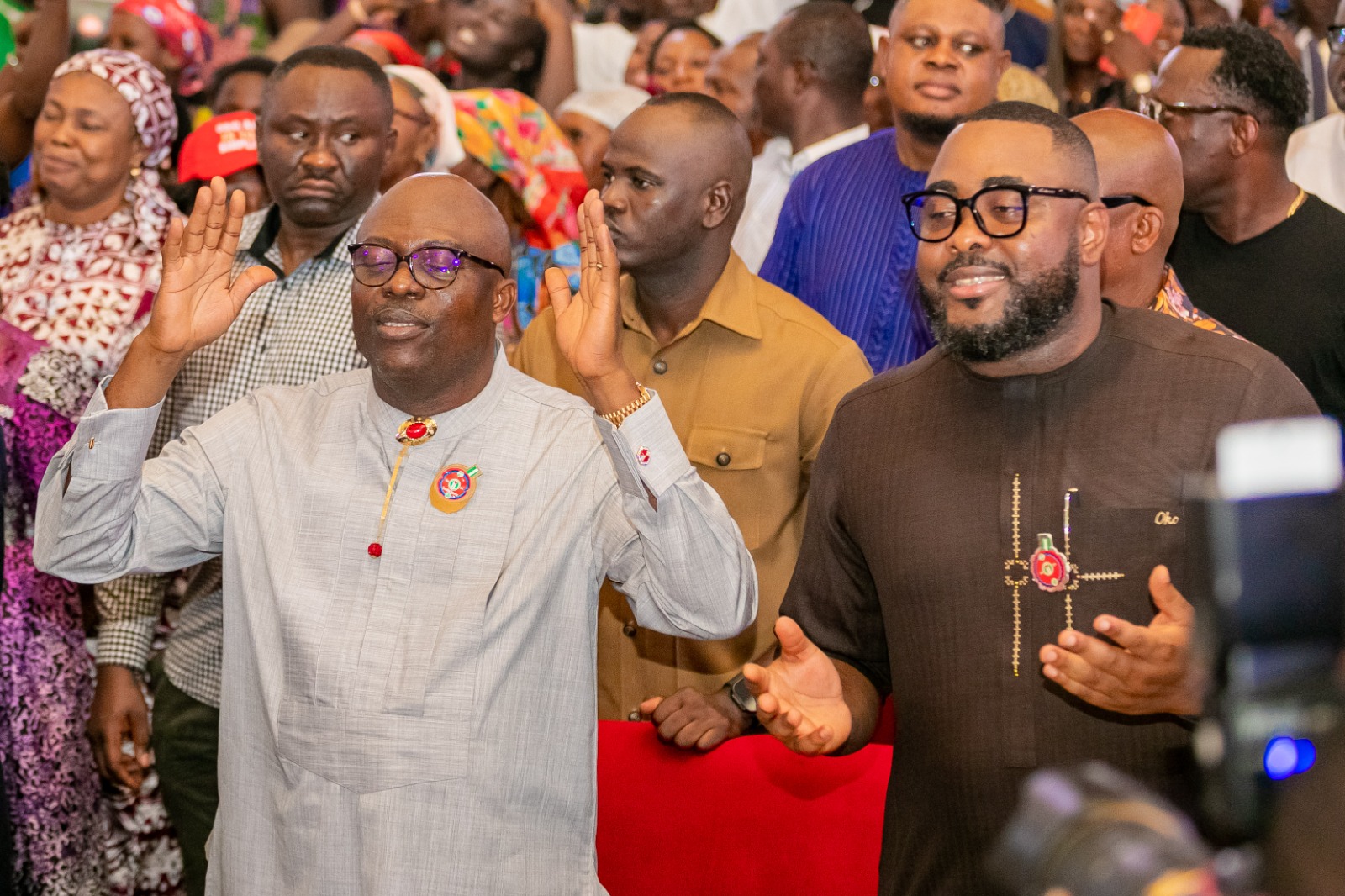
Born on January 28, 1975, in Opobo Town, Mr. and Mrs. Joseph and Love Fubara welcomed their second of five children and first son. His father, a former soldier who completed an overseas training tour of duty, instilled in him a strong sense of discipline and dedication. His mother, a civil servant, taught him the importance of hard work and perseverance.
He received his primary education at Opobo Primary School and continued his studies at Comprehensive Secondary School in Opobo. His passion for numbers led him to pursue a degree in Accountancy at the then Rivers State University of Science and Technology, now known as Rivers State University.
Upon completion of his Bachelor’s degree, he pursued further education and obtained a Master of Business Administration (MBA) and a Master of Science (MSc) from the prestigious University of Port Harcourt in 2013 and 2016, respectively. Fubara’s dedication to his studies and his commitment to personal growth have shaped him into the accomplished individual he is today.
Sim, fondly called by his colleagues, started his career in 2003 as a principal accountant at the Rivers State Senior Secondary Schools Board. His dedication led to his promotion to Director of Finance and Accounts at the Government House in 2015. In March 2020, he was appointed Permanent Secretary and then became the Accountant-General of Rivers State on December 23, 2020.
His achievements are numerous, as he is a Knight of the St. Christopher (KSC) Order of the Church of Nigeria Anglican Communion. Additionally, he holds the prestigious traditional chieftaincy title of Amaopusenibo of Opobo Kingdom. The Governor’s commitment to family is evident through his marriage to Valerie Ibiere Fubara, with whom he shares three beautiful children.
Among Siminalayi’s other significant qualifications and accomplishments are his fellowship with the Nigerian Institute of Management and his fellowship with the Association of National Accountants of Nigeria (ANAN). He holds membership in the Chartered Institute of Forensic and Investigative Auditors. His impressive background has gained him the trust and support of the Peoples Democratic Party (PDP), leading to his victory in the party’s governorship primaries for the 2023 general elections.
Fubara embodies a leadership style defined by simplicity and compassion. He exhibits patience, confidence, and empathy in his interactions with those he serves. His humility and faith in God make him trustworthy. Representing the younger generation, Sim leads with the slogan “Consolidating and Continuing the New Rivers Vision,” focusing on developing infrastructure, healthcare, education, security, agriculture, and investment opportunities for Rivers State.
The bravery exhibited by His Excellency in resisting godfatherism has attracted respect from a wide array of Nigerians, Africans, and supporters of democracy around the world. He emphasises serving the interests of the people of Rivers over any godfather. His actions unify diverse groups in the state, promoting a sense of belonging among various ethnicities.
Our affable Governor exemplifies robust moral leadership rooted in his Christian beliefs. As a devoted Knight, he shows compassion and selflessness in his governance. He fosters an environment where all religions can peacefully coexist. Fubara sponsored Muslim pilgrims for the 2024 Hajj and personally wished them well, encouraging them to pray for the state and Nigeria. His religious tolerance has earned him respect among Nigerians who value coexistence.
Moreover, the Governor’s appealing physique and charming smile have garnered admiration from many Nigerians, who view physical beauty as a reflection of inner qualities. His tall stature has solidified his status as a revered figure, commanding respect across the nation. Fubara has shown dedication to women’s issues by initiating several programmes in collaboration with the Women Affairs Ministry and the Office of the First Lady, highlighting his strong commitment to women’s empowerment and gender equality.
Sir Fubara has focused on actively involving young people in his governance by launching entrepreneurship and training schemes, notably the Rivers State Youth Empowerment Scheme. His efforts to support youth have earned him the backing of many young Nigerians. Additionally, he provides scholarships and makes donations to orphanages, demonstrating his commitment to investing in education for the benefit of children in the state.
Known for his strong commitment to national unity, this Governor reaches out to Nigerians from various backgrounds. As a state Governor, he demonstrates great nationalism by supporting citizens from other states, especially in Rivers. He respects the rule of law and democratic values, which has enabled past local government chairmen to complete their terms without issues. His effective management of Rivers State’s resources promotes transparency and accountability.
Despite facing numerous distractions, the Rivers Chief Executive has made remarkable strides in steering the state’s affairs, reflecting his unwavering focus and commitment to delivering results. He has encountered challenges but remains dedicated to his vision for a better state. His peaceful and caring leadership style has made him popular, inspiring new leaders to emulate similar qualities. By being strong yet compassionate, he has redefined the concept of leadership. Fubara’s selfless nature prioritises the state’s needs above his own. This has earned him widespread support.
As he commemorates his Golden Jubilee birthday today, even the most ardent critics, adversaries, and accusers cannot overlook that he embodies a worthy precursor in every sense.
Happy Birthday, His Excellency!
Editorial
Fubara’s 2025 Budget Of Inclusive Growth
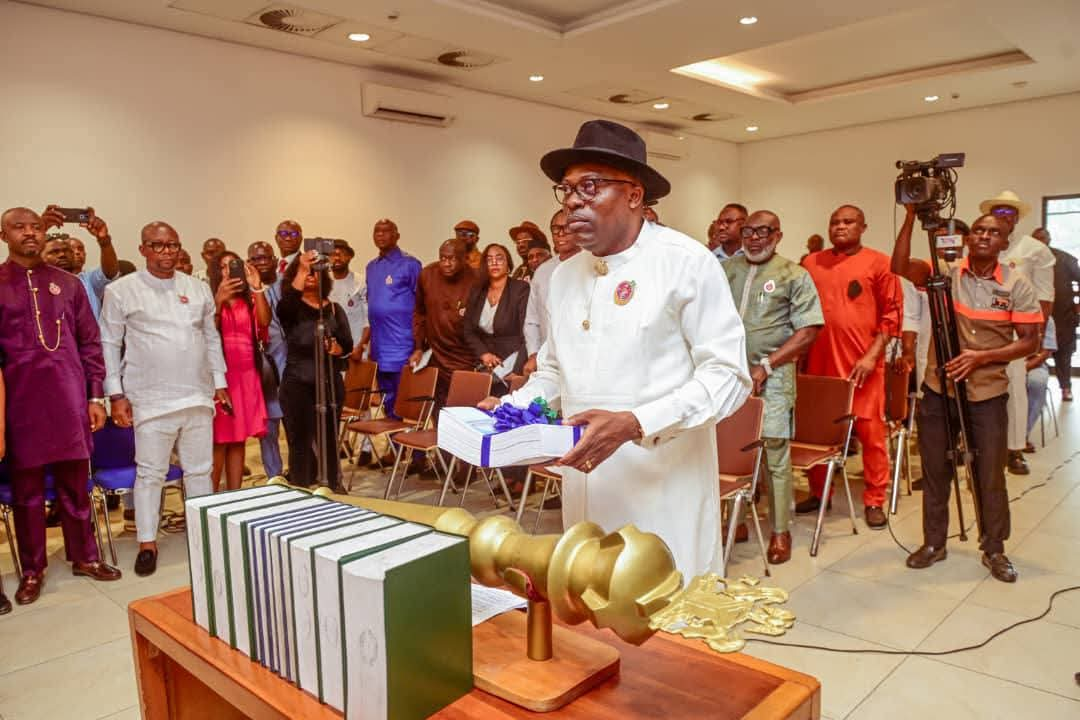
-
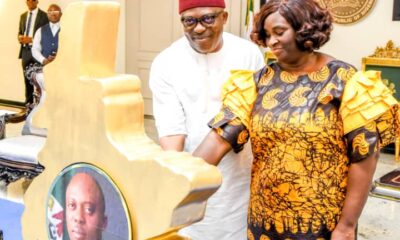
 Featured5 days ago
Featured5 days agoI Won’t Allow Spoils Of Office To Change Me – Fubara …As Rivers People Mark Gov’s 50th Birthday With Prayers
-
Business4 days ago
Nigeria Losing $40b Annually From Maritime Sector – NIMENA
-
Business5 days ago
Expert identifies UNICEEF’s NLP As Spring Board To AI In Benue
-
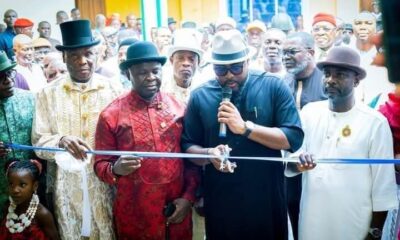
 Niger Delta4 days ago
Niger Delta4 days agoCommissioner Hails RSHA Speaker Over Promise Of Constituency Projects To Ogu/Bolo
-
Politics5 days ago
Presidency, APC React As El-Rufai Criticises Party, Urges United Opposition
-

 Niger Delta4 days ago
Niger Delta4 days agoNDDC’s Performance, Boost To Tinubu’s Government – Coalition
-
Politics5 days ago
Same Faith Ticket, CAN Yet To Decide For 2027
-

 Business4 days ago
Business4 days agoUBA To Educate SMEs, Business Owners On Withholding Tax

